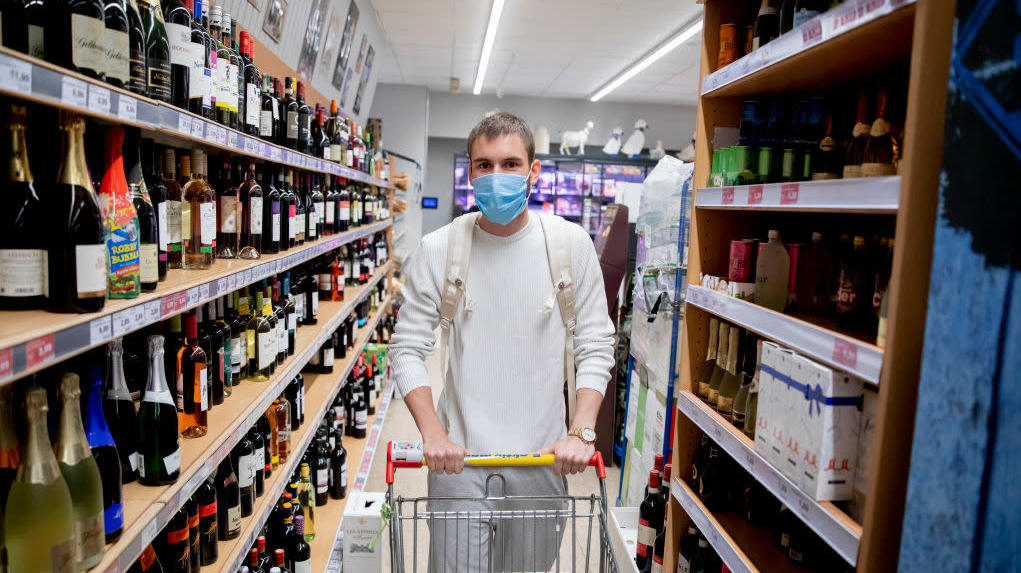It's Not Just You—grocery Store Anxiety Is A Real Thing
It bears repeating, in a time of prolonged mandated isolation, that you are not alone. No one is handling the current situation with more or less aplomb than anyone else, and the fears and anxieties you're facing are matched in countless others who might be too self-conscious to speak up about it. One major source of anxiety right now is the grocery store, a highly trafficked area that, for those who lack access to or money for delivery services, is a necessary trip out into an uncertain world. And according to The Washington Post, grocery store anxiety is not only real, but widespread.
Food reporter Emily Heil writes of her recent shopping experience, and the series of mental calculations she makes throughout her visit might sound familiar to many of us:
It does not seem normal, this surge of animal fear I feel buzzing around my ears as I push a cart down the beverage aisle of my grocery store. I spot a couple with a young child approaching me. They aren't wearing masks, and the little girl is weaving about, arm outstretched. I freeze, then whip the buggy around and retreat, searching for open space.
Reaching out to mental health experts, Heil found that this common form of mental distress might be the result of various stressors stacked on top of each other in newfound ways. "At the grocery store, first off, you're anxious about being able to get the supplies you want," said University of Michigan psychology professor Stephanie Preston. "And then the idea of fighting over resources is extremely aversive, so you have internal conflict, and that's anxiety-producing in turn."
Then, of course, there's the uncertainty that lingers with the nature of COVID-19 itself, and how we might be complicit in its spread—a feeling that's compounded by the fact that no two grocery chains are handling safety precautions the same way. Therapist Jennie Steinberg explained it this way: "What you're really scared of is that you're thinking, 'What if I make one little mistake and I get sick or I get someone else sick?'"
Another poignant source of stress in public during stay-at-home orders is something psychologists call "social comparison." This is a phenomenon we're seeing play out in real time: seemingly overnight, some people have begun fancying themselves social distancing experts, policing the mask etiquette and six-foot radius of other shoppers in the aisles and directly comparing their own behaviors to those around them. If they sense a disparity—you guessed it!—feelings of anxiety can ensue.
So what can we do about any of it? Pretty much the same techniques that help mitigate stress from any other situation. Experts recommend breathing exercises: mimicking slow, deep, normal breathing patterns to induce a sense of calm. They also suggest proactive empathy, understanding that our frustrations with those around us are probably a projection of our own worries first and foremost. When you're nice to others, there are tangible benefits, and it's a great way to step briefly outside of ourselves—because we've all been spending a lot of time with ourselves lately.
